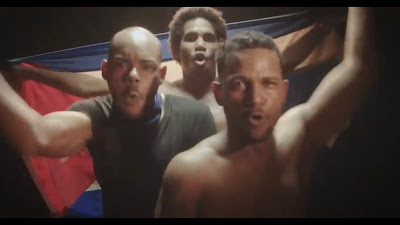"Human rights are universal and indivisible. Human freedom is also indivisible: if it is denied to anyone in the world, it is therefore denied, indirectly, to all people. This is why we cannot remain silent in the face of evil or violence; silence merely encourages them." - Vaclav Havel
May 26 - 28
Since 2011 this blog has followed the Oslo Freedom Forum and the different human rights themes over the past decade, and celebrated in 2012 when the Vaclav Havel Prize for Creative Dissent was inaugurated.
This year marks 17 years of this important human rights forum.
On the first day there was a debate on the effectiveness of sanctions as a policy tool, but left out of consideration the role that increased resources play in exporting authoritarian and totalitarian models to other countries.
Nearly ten years ago, in the Panam Post I made the case against loosening sanctions on dictatorships, using the example of what had happened on the two occasions that they were loosened on the Cuban regime.
"The Carter Administration was the first to lift the travel ban and hold high-level negotiations with the Cuban dictatorship, and both sides opened Interest Sections in their respective capitals between 1977 and 1981. Then from 1981 to 1982, the Castro regime executed approximately 80 prisoners, which was a marked escalation when compared to 1976. Furthermore, during the Carter presidency, Fidel Castro took steps that resulted in the violent deaths of US citizens.
During the Mariel crisis of 1980, when over 125,000 Cubans sought to flee the island, the Cuban dictator sought to save face by selectively releasing approximately 12,000 violent criminals or individuals who were insane into the exodus. According to his bodyguard, “with the stroke of a pen,” Fidel Castro personally “designated which ones could go and which ones would stay. ‘Yes’ was for murderers and dangerous criminals; ‘no’ was for those who had attacked the revolution.”
In Latin America, this warming of relations coincided with the arrival of the Sandinistas to power in Nicaragua in 1979 and a widening civil war in Central America, all with Cuban backing.
The second to seek engagement was the Clinton administration in the 1990s, similarly coinciding with brutal massacres. That included 37 Cubans in the “13 de Marzo” tugboat sinking (1994) and the murder of four in the Brothers to the Rescue shoot down (1996). Despite all of this, President Clinton shook hands with Fidel Castro in 2000 and opened up cash-and-carry trade that formed a pro-Castro lobby in the United States. In Latin America, this warming of relations coincided with the arrival of Hugo Chavez to power in Venezuela in 1999 — with Cuban backing that has had negative consequences throughout the region."
Cuban speaker Enrique Del Risco was present at this 17th edition Oslo Freedom Forum on the second day, and he highlighted how regime elites are building shiny high rise hotels, while average Cubans live in squalor. Western democracies are complicit in subsidizing these bad actors, often with taxpayer funds. Thanks to the U.S. embargo none of them are Americans.
Later the same day the 2025 recipients of the Václav Havel International Prize for Creative Dissent: Azza Abo Rebieh, Sasha Skochilenko, and Luis Manuel Otero Alcántara were recognized.
Luis Manuel was able to deliver an audio message from his prison in Cuba.
This blog entry thus far is Cuba-centric, but the Oslo Freedom Forum spans the world, as do the human rights crises .
Oswaldo Payá when awarded the Sakharov prize for Freedom of Thought on December 17, 2002 spoke prophetically when he said: “The cause of human rights is a single cause, just as the people of the world are a single people. The talk today is of globalization, but we must state that unless there is global solidarity, not only human rights but also the right to remain human will be jeopardized.”
Too often some Cubans, for justifiable reasons, are focused on the
troubles in Cuba, but fail to see what is happening elsewhere. Too many
believe that we are alone, and that no one is watching our plight.
This is not true.
Martin Luther King Jr. in his "Letter from Birmingham Jail" explained why.
“In a real sense all life is inter-related. All men are caught in an inescapable network of mutuality, tied in a single garment of destiny. Whatever affects one directly, affects all indirectly. I can never be what I ought to be until you are what you ought to be, and you can never be what you ought to be until I am what I ought to be... This is the inter-related structure of reality.”
Just as what happened in Cuba affected what is happening in Venezuela, and Nicaragua, so is what happening in China and Russia affecting Cuba. Therefore we owe it to ourselves to learn what is happening around the world, and to be in solidarity with human rights defenders, and friends of freedom everywhere.
Tomorrow, May 28, 2025, is the last day of the 2025 Oslo Freedom Forum, please join them online.























